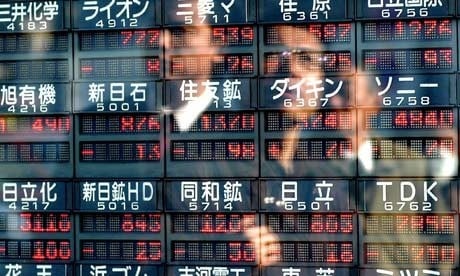 |
| Photo for illustration purposes only |
Global stocks plunge
In Asia, Japan's Nikkei index fell 4.5%; while shares in South Korea fell 1.7%.
MSCI's broadest index of Asia- Pacific shares outside Japan also fell 0.5%.
Chinese stocks also had a lackluster start on Friday. The blue-chip CSI300 index fell 0.5% while Hong Kong's Hang Seng index fell 0.38%.
US stock futures also turned lower overnight, with the S&P 500 and Nasdaq down about 1%.
The sell-off in US Treasuries continued to accelerate in Asian trading, with the 10-year yield rising to 4.475%, up more than 40 basis points for the week, its biggest weekly gain since 2001, LSEG data showed.
“The near-term outlook for global risk assets remains uncertain due to growth and inflation concerns, volatile sentiment and rapidly changing developments on the trade and tariff front,” said Vasu Menon, managing director of investment strategy at OCBC Bank in Singapore.
The US dollar fell sharply.
In the currency market, the US dollar has also faced a continuous sell-off in the past few weeks, as traders flocked to safe-haven currencies such as the Japanese yen, Swiss franc or euro.
The dollar fell to a 10-year low against the Swiss franc and a six-month low against the yen in early trading on Friday. The euro also jumped 1.7% to $1.13855, its highest in more than three years.
The U.S. dollar index, which measures the greenback against six major currencies, fell below 100 for the first time since July 2023. The dollar's slide has helped some emerging market currencies recover.
Fear of recession
According to analysts, investors are currently concerned about the escalating US-China trade war after Mr. Trump increased tariffs on Chinese imports, raising the total tax rate to 145%; China also responded by increasing tariffs on US goods. Trade tensions risk pushing the US and global economies into recession.
Although data from the US Department of Labor showed that US consumer prices unexpectedly fell in March, economists said the improvement in inflation was unlikely to be sustained after the tariffs were imposed.
Meanwhile, a sharp sell-off in US Treasuries this week has stoked fears of fragility in the world’s largest bond market. The yield on the 30-year bond rose to 4.90%, on track for its biggest weekly gain since at least 1982, LSEG data showed.
Analysts and investors globally have pointed to this week's sharp sell-off in Treasuries and weakness in the US dollar as evidence that confidence in the world's largest economy has been shaken.
“There is clearly an exodus from U.S. assets. Falling bond and currency markets are never a good sign,” said Kyle Rodda, senior financial markets analyst at Capital.com. “This goes beyond pricing in slowing growth and trade uncertainty.”
The outlook remains more bleak and uncertain than it was a month ago, said James Athey, director of fixed income at Marlborough. “There are still a lot of unanswered questions and unanswered questions.”
Concerns about a recession also pushed gold prices up 1.25% in the latest trading session to $3,214/oz. Meanwhile, oil prices fell in early trading on Friday after falling more than $2/barrel on Thursday. Specifically, WTI futures fell 0.48%, while Brent futures fell 0.46%.
Source: https://thoibaonganhang.vn/co-phieu-usd-lao-doc-tai-san-an-toan-tiep-tuc-len-ngoi-162629.html




































































































Comment (0)